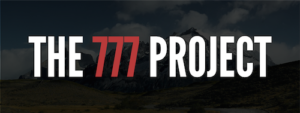When’s the last time you learned something new? A weird aspect of adult life is people are obsessed with learning for the first 20 years of their life, but care less about what specifically they’re learning. Then, a large majority assume that they’ve learned everything they ever can learn and are the same person for the next 50 years until they take a dirt nap.
I wrote last week about pulling the trigger and crossing kitesurfing off my impossible list. Something I’ve wanted to do for 10 years, but never really did because “I’m not a water sports” or “I’m not a board sports” kind of guy.
It was the first time in a long time that I learned something new. Through it – I felt like there were 7 distinct stages that I went through and they seemed to map well to other experiences where I learned something for the first time.
Let me know if you agree.
Interest
You have an inkling that you’ll like something. Or, you’re just curious. You start googling it, put it on your impossible list, and start making imaginary plans, but never pull the trigger.
You’re at the stage where you’re constantly talking about ideas, but haven’t put any of it into action.
This is like a battery at a charging station. Useful for the right amount of time – to charge your interest to 100%, but once it’s full – there’s no use spending any more time here.
Note: This is actually where most people give up. They think about lots of things they would like to do, but they never actually try anything.
Commitment
This is the stage where you move from thoughts to action. It moves from “someday” to “today.”
You take an action to lock in the adventure. You sign up for the race. Book the ticket. Enroll in the class. Sink your costs.
You make the commitment – the the skill and to yourself.
You decide what it is you’re going to do and then don’t wait around – go do it.
You’ve created an inciting incident for the new adventure and you’ve jumped into a new story.
Excitement
This is the excitement that comes from trying something new and the naivety of what it will take to figure things out.
This lasts even through your first failures – when optimism is high.
This is the unbridled enthusiasm you have before you realize that impossible things are often considered impossible because they are in not at all easy. Many people have come before, tried and given up.
But you’re not there yet. You have high expectations and while excited or nervous – you’re haven’t quite experienced the real difficulties that you’re in for.
Dejection
There comes a point when you start learning something and it just doesn’t seem like things are going to pan out for you.
No matter what happens, it seems like you just keep stacking up failures and mistakes.
You start to think:
- “maybe this isn’t for me”
- “maybe this is just too difficult.
- “maybe I should just stick to the things I know”
For me, I was literally 2 1/2 days into kiting and falling all over myself where I thought, “maybe I’m just the one guy in the world who can’t figure out how to kitesurfing.”
You’re bummed out. You made the commitment, you were excited, you’ve pushed through some learning, and you still failed.
“What’s the point? Maybe this was a dumb idea. Maybe I should stick to the things I already know”
This is where the second most amount of people give up. They simply give up because it’s hard. It is supposed to be hard. Most people don’t really fail. They just give up too soon. Usually right about here.
Belief
You’re busted up and discouraged. Borderline broken. You’re disappointed, annoyed, maybe even furious. You want to lash out at life, God or the universe to blame, and you can choose to give up (lots of people do).
But instead, you do something else.
You start to hope that you can figure it out.
You literally think “I can do this.”
“I can figure this out. I might fall more, fail more, and get beaten and bruised, but other people have done this before and they are not that much smarter, more athletic, or skilled than me. “
That belief keeps you going – even before you’re sure you can do it.
And then…
Practice
You do something that surprises yourself and gives you just enough confidence to keep going. You are not good – no – not anywhere near it – but you stumble upon something that gives you hope.
You gain a foothold – even the slightest – that gives you confidence that you can keep pushing and makes the future falls (they’re guaranteed) feel less painful. Because you can see the hope. You can see the end of the story. You know better things are coming.
You not only practice, but you commit yourself again to the practice of it and start to realize that if you keep at it – you might even get good at this thing.
Mastery
You’ve learned the basics, you realized you can do it and it’s not completely impossible.
Now it’s time to level up and get great.
You start to realize that what you think you know – is only a fraction of what you could know – and the pool of knowledge is much more vast than the kiddie pool you’ve been playing in.
Mastery involves going back to step 1 and being a beginner in some small area that you need to learn.
You realize each discipline has a surprising amount of detail and you start to calibrate how much of that you want to learn and how much you’re happy not engaging with.
—
No matter what’s next on your impossible list, it’s worth keeping these in mind. It’s helpful to know that each stage is a part of the process so when you’re tired, exhausted or feel like you might never figure it out – that means you’re close. So keep going.


Very nicely written. Learning is something that you should continue doing your whole life. There is never too much knowledge that you can obtain. It doesn’t have to be books, pencils, paper, and classrooms. Learn a sport, research a topic that interests you or anything else you want to do. Everyone should always be willing to learn something new. -Ryan